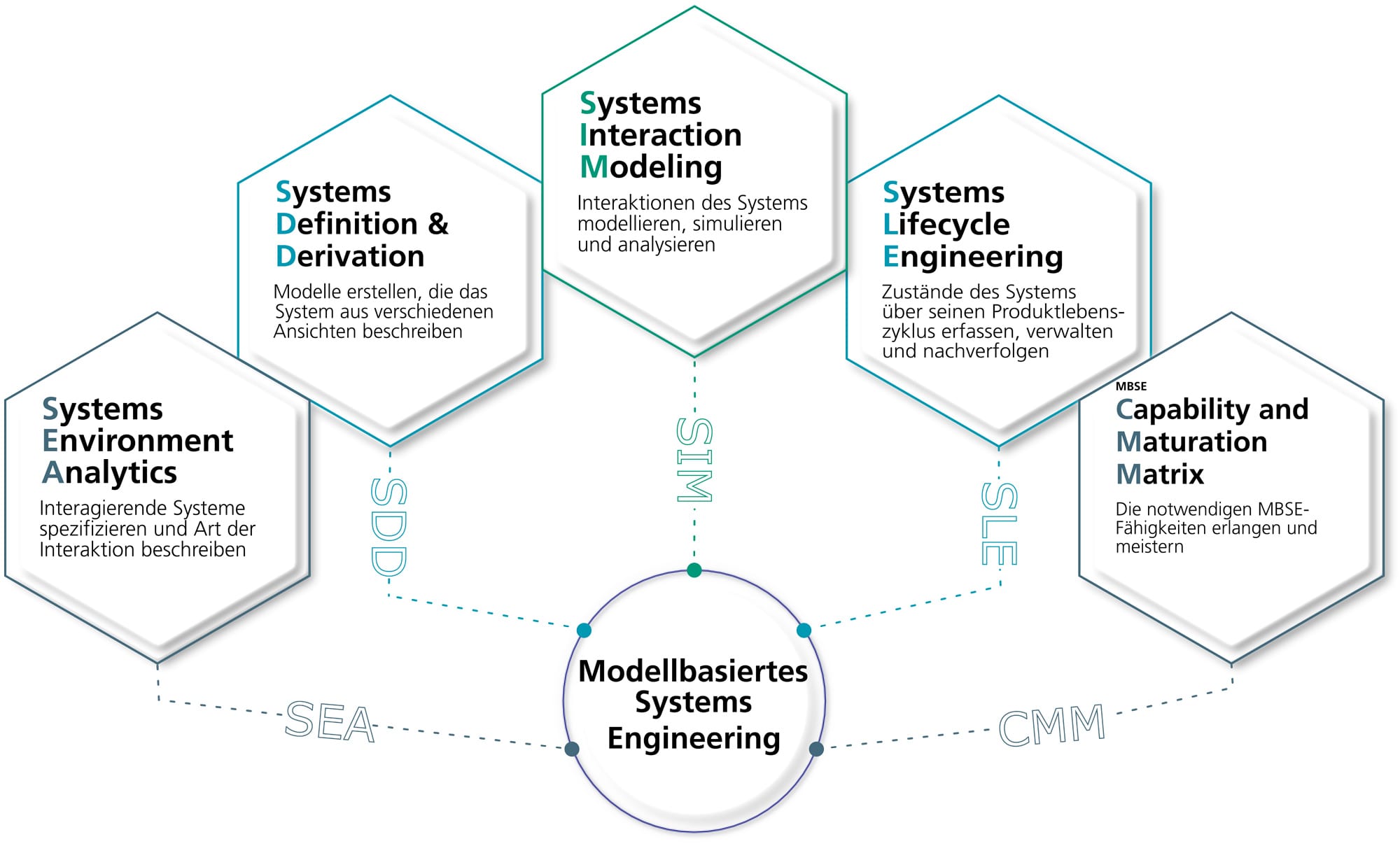What is Systems Engineering?
Systems engineering is a subject area that combines different approaches and methods for the development of complex systems. The complexity of systems can usually be traced back to the diversity of the system elements. For example, in a product-service system (PSS), complexity arises from the integrated consideration of product properties and functions in the direct context of the services in which they are used and which are developed simultaneously. With mechatronic systems, on the other hand, the challenge lies in the coordination between the development work of the different specialist disciplines, mechanics, electronics and software. In both cases, the complexity is due to the demanding coordination between different development strands or task areas within a development project. Thus, it becomes clear: in the development of complex systems, a structured and targeted coordination between different subject matter experts is a key success factor.
What is Model Based Systems Engineering (MBSE)?
Model Based Systems Engineering (MBSE) is the formalized application of models to support system requirements, design, analysis, verification and validation activities in the design phase and throughout the entire development process.
Advantages of Model-Based Systems Engineering
MBSE is a multidisciplinary approach aimed at developing a balanced system solution in response to diverse stakeholder needs.
- MBSE helps engineers to maintain an overview of complex systems, to understand interrelationships and to meet the specification and thus all defined requirements.
- While conventional systems engineering methods are paper- or document-based, MBSE is based on digital system models. This allows role-specific views of a system to be generated dynamically from existing models. Documents required by customers or regulators can be automatically generated and derived.
- Instead of copying system information and parameters for use across multiple development environments, parameters are referenced exclusively in MBSE. In this way, changes to the system do not need to be maintained in multiple tools, but changes are automatically and consistently available through trace links in all development environments. MBSE thus enables earlier and better error detection and thus time savings during development and system integration.
These advantages of MBSE enable a better understanding of problems, the recognition and control of complexity, as well as improved communication between all participants of a project.
 Fraunhofer Institute for Production Systems and Design Technology
Fraunhofer Institute for Production Systems and Design Technology